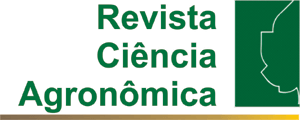The Apodi Plateau, located in the northeastern part of the state of Ceará in Brazil, has limestone as its parent material, with significant variation in the soils formed in this region, as well as the presence of iron nodules, having been identified. The iron oxides have been used as indicators for evaluating the weathering processes of some soils, with the nodules being sources of information about pedogenic processes. Seeking to evaluate the influence of the karstic parent material and of the iron nodules on soil genesis in the Apodi Plateau, the morphological, physical and chemical properties of five profiles were evaluated, as well as of the iron nodules present in some horizons. The profiles were classified as RED-YELLOW ARGISOL Abruptic eutrophic plinthosol (P1), Tb HAPLIC CAMBISOL Eutrophic latosol (P2), RED-YELLOW ARGISOL Abruptic eutrophic plinthosol (P3), Tb HAPLIC CAMBISOL Eutrophic latosol (P4) and RED ARGISOL Eutrophic nitosol (P5). Changes in chemical, physical and morphological characteristics were observed at depth in some profiles, suggesting variation in the characteristics of the parent material. Nodules of class C1 (0.053 to 0.25 mm) and C2 (0.25 to 2.00 mm) were concentrated on the surface, alternating with a sub-surface concentration of class C3 (2.00 to 4.76 mm), C4 (4.76 to 7.90 mm) and C5 (7.90 to 19.1 mm). Profile P5, considered as more evolved, showed a predominance of classes C1, C2 and C3 in the surface horizons, indicating degradation of the larger-diameter nodules with the advancing weathering process.
Pedogenic processes; Limestone; Soil classification








